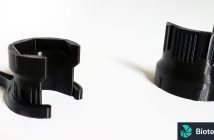As if you needed another reason to hate damselfish, NPR (yes, National Public Radio) has reported that damselfish in the Caribbean are destroying corals to create and maintain their own little “algae farms”. Here’s the link to the original article: Tiny Damselfish May Destroy A Caribbean Reef, by Richard Harris
Algae Farmers, Coral Killers
Damselfish Protecting Algae Garden
Both the corals and the algae have natural allies. Corals get help from parrot fish, which eat the intruding algae from the reef. And algae get help from certain species of damselfish.
“Damselfish are these little fish and what they do is they make little yards on the bottom of the reef,” says marine biologist Mark Vermeij. These yards — or pastures, you could call them — are patches of algae that the fish actually farm right on the coral.
“And in order to make a place for one of these yards, they basically kill the coral,” Vermeij says. “So they go to the coral, they start sucking on little polyps until they die. And then when that happens, little algae establish on that died-off patch.”
Once the algae start growing, the damselfish becomes not just a farmer but a warrior.
“They’re little feisty guys,” Vermeij says. “There are rainbow parrot fish, almost a meter long, and this damselfish that’s not much bigger than a goldfish just comes out. This parrotfish is aiming at feeding in that guy’s little meadow. And the little damselfish just comes out and scares that thing away. They’re aggressive as hell.”
Damselfish Protecting Algae Garden
And the more successful they are, the more the coral is killed off and replaced by their algae gardens.
It’s a drama that has been going on since time immemorial. But lately, the story includes hooks, lines and sinkers.
People don’t eat these little damselfish, but Vermeij says people do eat bigger fish on the reef. And that’s where the story takes a twist.
“Twenty years ago, life on these reefs for little fish was basically annoying. Because there were all these big fish around that would eat you if you weren’t paying attention. And then because a lot of people took the big fish out, it’s a much safer environment for these little fish,” Vermeij says.
So how are these “Damsels from Hell” making such an impact? The answer is lack of predators. The article goes on to explain that a local grouper, called a Graysby, is being over fished due to its popularity with the locals. The predator is removed from the food web, which thereby affects the ecosystem in a negative fashion.
Source:
National Public Radio







